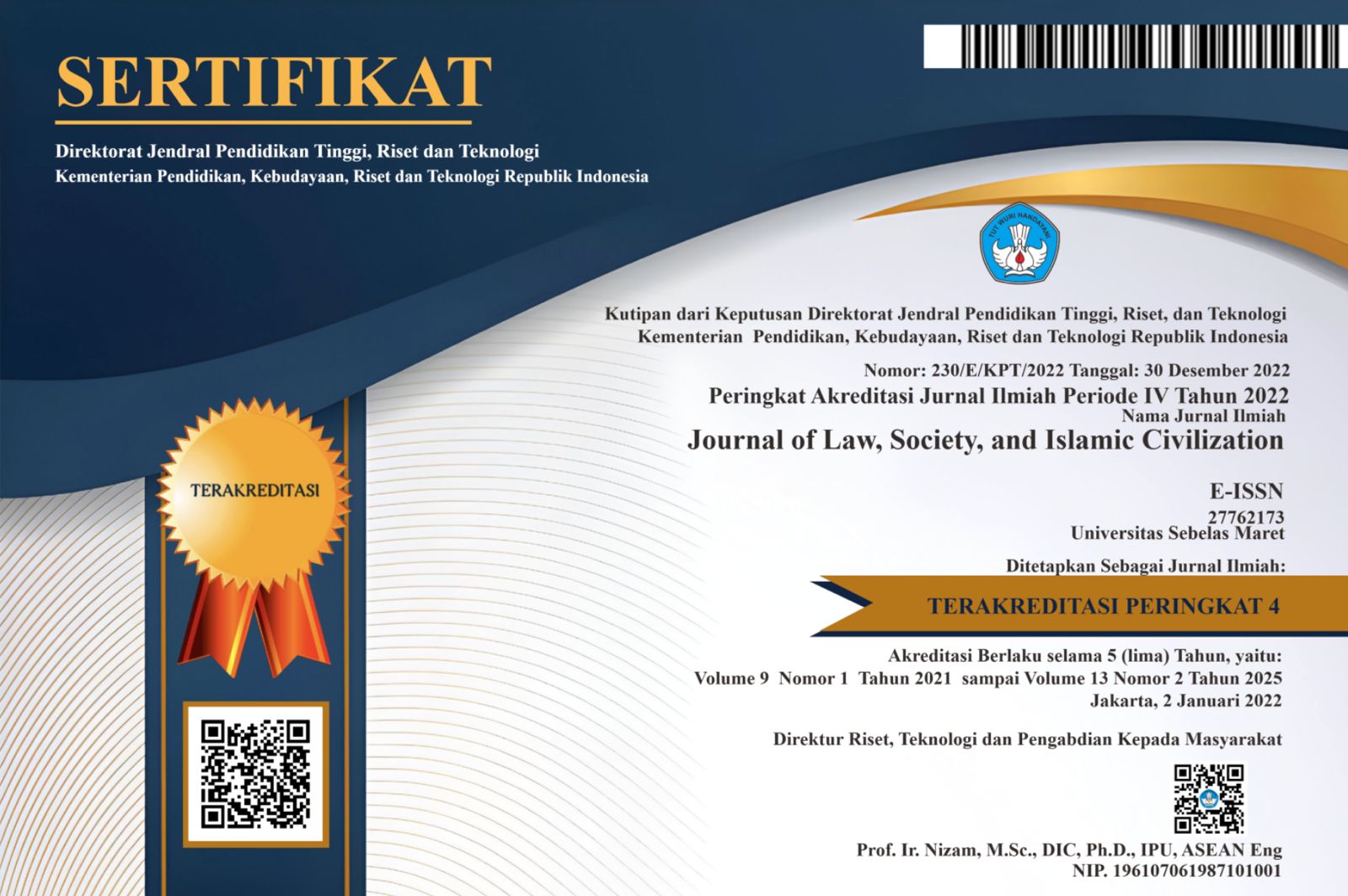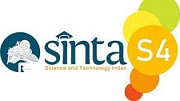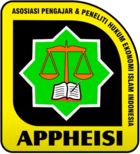The Effectiveness of Integrity Pact Signing on Efforts to Eradicate Corruption in the Supreme Court
Abstract
Keywords
Full Text:
PDFReferences
Basuki, A. (2010). Pakta Integritas Di Tengah Suramnya Pemberantasan Tindak Pidana Korupsi Di Indonesia. Perspektif, 15(1), 37-49.
Bayu, D. (2023). ICW: Penindakan Kasus Korupsi Meningkat pada 2022. Dipetik September 14, 2023, dari DataIndonesia.id: https://dataindonesia.id/varia/detail/icw-penindakan-kasus-korupsi-meningkat-pada-2022.
Bustomi, A. (2017). Kekuatan Mengikat Isi dari perjanjian Baku (Standard Contract) Bagi Para Pihak yang Membuatnya. SOLUSI, 15(3), 376-381.
Donni Juni Priansa, A. G. (2013). Manajemen Perkantoran: Efektif, Efisien, dan Profesional. Bandung: Alfabeta.
Endro, G. (2017). Menyelisik Makna Integritas dan Pertentangannya dengan Korupsi. Integritas: Jurnal Antikorupsi, 3(1), 131-152.
Firmansyah, V. Z., & Syam, F. (2021). Penguatan Hukum Administrasi Negara Pencegah Praktik Korupsi dalam Diri Pemerintahan Indonesia. Integritas: Jurnal Antikorupsi, 7(2), 325-344.
Griffin, R. W. (2004). Manajemen. Jakarta: Erlangga.
Indonesia, B. P. (2019). Database Peraturan. Dipetik September 13, 2023, dari Dtabase Peraturan: https://peraturan.bpk.go.id/Details/122028/uu-no-19-tahun-2019.
Indonesia, M. A. (2022). Mahkamah Agung Republik Indonesia. Dipetik September 13, 2023, dari Mahkamah Agung Republik Indonesia: https://www.mahkamahagung.go.id/id/pengumuman/5438/penandatanganan-pakta-integritas.
Mayasoni, L. (2022). Metode Mengukur Efektivitas Kebijakan Publik. Jurnal Sosial Politik Integratif, 2(3), 169-173.
Murdiyanto, E. (2020). Metode Penelitian Kualitatif (Teori dan Apllikasi Disertai Proposalnya). Yogyakarta: UPN "Veteran" Press.
Nugroho, R. (2012). Public Policy. Jakarta: Kompas Gramedia.
Rachmawati, A. F. (2022). Dampak korupsi dalam perkembangan ekonomi dan penegakan hukum di indonesia. Eksaminasi: Jurnal Hukum, 1(1), 12-19.
Rosalina, I. (2012). Efektivitas Program Nasional Pemberdayaan Masyarakat Mandiri Perkotaan Pada Kelompok Pinjaman Bergulir di Desa Mantren Kec Karangrejo Kabupaten Madetaan. Jurnal Efektivitas Pemberdayaan Masyarakat, 2(2), 1-9.
Salimah, S. (2013). Upaya Komisi Pemberantasan Korupsi dalam Menangani Kasus Korupsi Gayus Halomoan P Tambunan. Jurnal Cita Hukum, 1(2), 312-334.
Setiawan, I., & Jesaja, C. P. (2022). Analisis Perilaku Korupsi Aparatur Pemerintah Di Indonesia (Studi pada Pengelolaan Bantuan Sosial Di Era Pandemi Covid-19). Jurnal Media Birokrasi, 4(2), 33-50.
Soerjono Soekanto, S. M. (2013). Penelitian Hukum Normatif: Suatu Tinjauan Singkat. Jakarta: Raja Grafindo.
Suharyo. (2020). Peranan Mahkamah Agung Sebagai Benteng Terakhir Dalam Penegakan Hukum Pada Pemberantasan Tindak Pidana Korupsi. Jakarta: BALITBANGKUMHAM Press.
Wardana, D., Meiwanda, G. (2017). Reformasi Birokrasi Menuju Indonesia Baru, Bersih dan Bermartabat. WEDANA: Jurnal Kajian Pemerintahan, Politik dan Birokrasi, 3(1), 331-336.
Watch, I. C. (2023). Indonesia Corruption Watch. Dipetik September 14, 2023, dari Indonesia Corruption Watch: https://antikorupsi.org/id/laporan-akhir-tahun-icw-2022.
Refbacks
- There are currently no refbacks.












